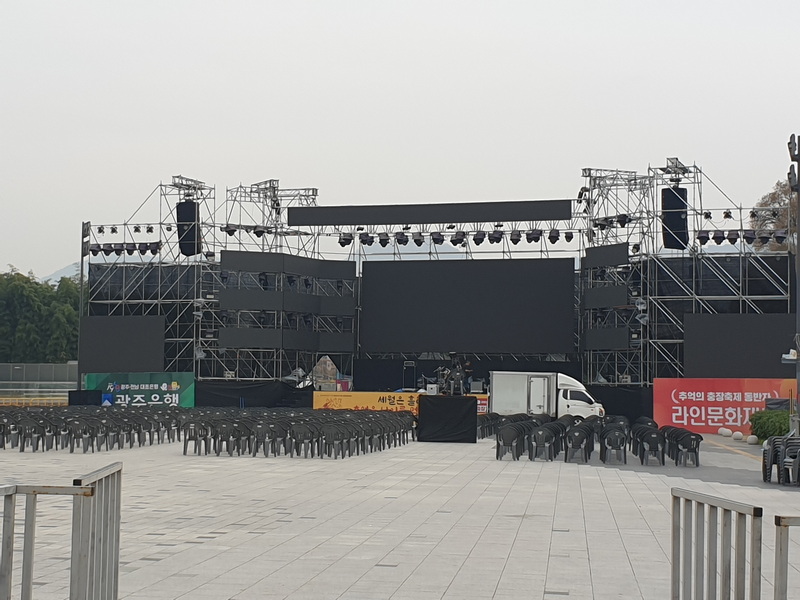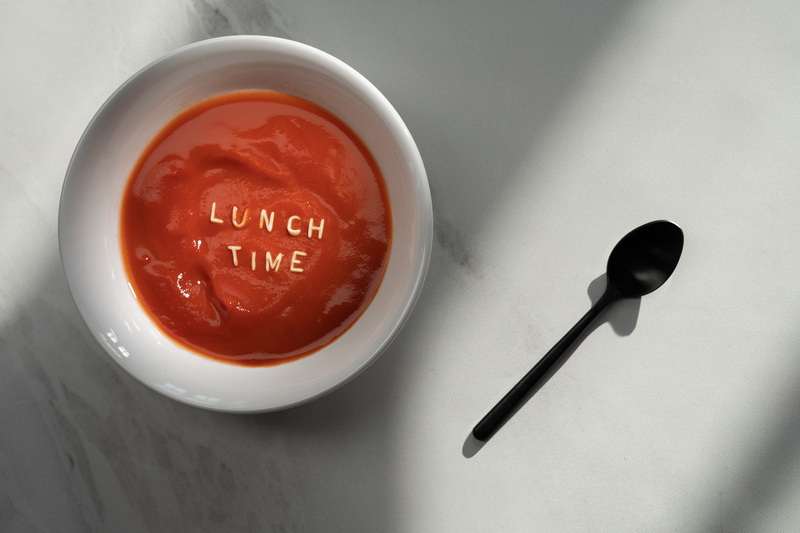Big Hit, Then a Swing and a Miss: The Best and Worst of Gwangju in 2021
By William Urbanski
2021 was for many people equal parts fortuitous and dumpster fire. While life in Gwangju has steadily marched forward, there was no shortage of trials and tribulations that just kept popping up. Personally, I feel quite happy to live in a city where life has pretty much remained normal and productive (all pandemics considered), especially compared to the tales of calamities in other parts of the world. That being said, Gwangju was not impervious to the ups and downs of 2021, and here are my picks for the biggest win and most epic fail of the year.
Biggest Win: Allowing Public Servants to Have an Actual Lunch Hour
This past July, the all five districts in Gwangju allowed their civil servants to shut down the office between noon and one in the afternoon so that they could, you know, actually sit down and eat lunch somewhere. This applies to all civil servants, or gongmu-won (공무원), including the frontline workers at your friendly neighborhood “gu” office who deal with people from all walks of life, day in, day out. While “taking a lunch break during the lunch hour” may not seem like a particularly revolutionary idea, it is important to understand that until the Gwangju districts implemented this change, workers had to rotate their lunches in order to keep services running for the populace at large. No doubt, this system of rotating lunch times subtly enforced the notion that lunch time was a luxury and led to a lot of public officers cutting their lunches short or skipping them all together. Gwangju was the first major metropolitan city in Korea to enforce a standard lunch hour, and now public servants in other cities such as Busan have demanded the change as well.
Interestingly, many regular people are extremely upset about this, complaining that lunchtime was the only time when they could visit the gu office to pick up documents or whatever. What this anger really shows is the underlying arrogance of people who feel that public officers are some sort of personal servants. Everyone in Korea knows that being a public officer is one of the most desirable career paths because of its stability and benefits, but there is a segment of society that is perhaps just a smidgen jealous of those who are able to obtain such gainful employment. This resentfulness manifests itself in the ridiculous assertion that could be aptly verbalized as “How dare they go for lunch! They are there to serve me!”
While it is kind of understandable that people would be upset that they can no longer visit their local gu office to handle important matters on their lunch break, I say, boo-hoo, cry me a river. Issues like passport issuance or assistance with basic livelihood assistance, for example, are not the kind of problems that materialize suddenly out of thin air. Anyone who has to address these kinds of problems did not become aware of them at 11:58 on a Tuesday morning and need them rectified by 12:15. If someone needs a passport renewed, he or she can do what the rest of the world does: expect it to take a good couple of weeks at least. As well, not being able to get important paperwork done is not the fault of people being on lunch break, but rather a person’s own poor planning. To those who are worried about not being able to get their passports lickety-split, here is a question: Where y’all think you’re going anyway? There’s a pandemic going on.
It does not make sense to be jealous or resentful of public officers for any reason. Something people do not fully understand is that while it may seem all sunshine and roses, there are a couple of serious downsides to these positions. First, every couple of years these officers, whether they like it or not, have to relocate to another city. In the best of scenarios, they can just drive to their new office (without being compensated for transportation costs), but in many cases, they have no choice but to uproot their lives or worse, spend the week living away from their families. Relocating every couple of years is extremely disruptive, especially when the workers are not told where their new jobs will be until mere weeks in advance. The second major drawback is that any job that involves dealing with the public has a laundry list of challenges, the least of which is dealing with jerks who see going into a store or office as a chance to vent. As anyone who has worked in retail surely has experienced (me too, on many occasions), unhappy customers routinely lose their minds and think they are justified in hurling abuse at workers. Dealing with people like this is the definition of emotional labor, and having a regular, predictable lunch break is the light at the end of the tunnel when dealing with tough customers all morning.
Keep in mind that anyone who has become a public servant in Korea earned that position by doing exactly what society demanded of them, better than ninety-nine percent of other people. They studied like crazy, did great in school, completed a degree, then passed the civil servant exam, which is, by all accounts, buck wild. Any worker at the gu office who is printing out your immunization record or registering your change of address is smart enough that they could have easily become an engineer, lawyer, or doctor if they had chosen that life path. All things considered, allowing these workers sixty minutes to chomp down their lunch is a pretty reasonable step.

Biggest Fail: Festivals at ACC Rear Their Ugly Heads Yet Again
Within what seemed like only minutes of the “Living With COVID-19” initiative beginning in earnest, a massive stage and a sea of plastic chairs were being set up at my beloved Asia Culture Complex (ACC). In a previous article, I rallied against these ridiculous and obnoxious festivals that clog up the big public square at the ACC and was actually very happy to see that they had, for good reason, been put on hiatus during the dark days of early COVID. Well, the powers that be are at it again and on the third week of November put on one of the biggest, most extravagant festivals I have ever seen at the ACC. It is like they had some extra money in their budget from the past year and threw it all at putting on the biggest gong show possible.
Please, pretty please, knock it off with these festivals already. As we have seen in the past few weeks, all the vaccines and social distancing of the past two years amounted to precisely jack squat once the easing of precautionary measures came into place. Now, COVID-19 cases are at record highs and maybe, just maybe, it is not the best time to entice people into gathering en masse to watch scantily clad dancers shake what their mammas gave them on a massive stage downtown.
For the record, I am not the least bit scared of COVID-19 and never have been. But what I do not like is the increased restrictions that follow every time the case numbers skyrocket. When open air concerts like this are allowed to happen, they lead to a spike in cases, which causes even further disruptions to our daily lives. Allowing these events is akin to giving someone a slice of cake then immediately forcing them to go on a restrictive and difficult diet.
Underlying the yearning to hold huge public gatherings is the hope that one day soon, things will go back to normal. The truth is, there is no going back. COVID-19 and Korea’s response to it has permanently changed the landscape, and the best thing for people to do is to remember that life only moves in one direction: forward.
Happy 2022!
What do you guys think are Gwangju’s biggest hits and misses of 2021? Let me know in the comments below, and do not forget to like, subscribe, and hit that notification bell – it really helps the magazine.
Photograph by William Urbanski.
The Author
William Urbanski is the managing editor of the Gwangju News. He is married and can eat spicy food. Instagram @will_il_gatto







